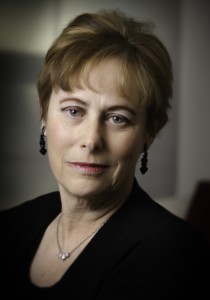 There are superstar scientists, property developers, art dealers, actors, singers, models and brands. It’s a celebrity-mad world. But what about authors? Everyone knows you need to market your books if you want to make your career successful as a writer. But what about marketing yourself?
There are superstar scientists, property developers, art dealers, actors, singers, models and brands. It’s a celebrity-mad world. But what about authors? Everyone knows you need to market your books if you want to make your career successful as a writer. But what about marketing yourself?
Traditional publishing superstars
Celebrity status in traditional publishing is relatively rare. A few vocal types like Scott Turow and Stephen Frey make enough noise to get noticed. And multi-million sellers like J. K Rowling and John Grisham are more or less household names, along with the controversial Fifty Shades of Grey newcomer E. L James, simply because they are so successful. But their private lives generally remain a mystery and the worst kind of celebrity hysteria passes them by.
One-book wonders
Most indie authors, however, only have one book, at least to begin with. And there are millions of self-published books out there, some awful, some great. The question is whether marketing yourself as an individual—what we’re increasingly calling “branding”— will help you stand out from the fast-growing crowd.
Let’s face it. There is only so much you can say about your book. You need to give readers enough information to inspire them to buy it, with good jacket description, review blurbs, and so on. But you don’t want to give away the plot. You can mention the characters, settings and scenes, themes, aims and intentions. But too often you soon run out of things to say, especially if you’re writing a genre novel, like mystery, sci-fi, or romance.
What is this branding thing anyhow?
The internet makes it easy for indie authors to promote themselves. And plenty of them are doing it, some without realizing what they are doing. If you have a blog and you are an indie author, you are already involved in branding. A book is a product like any other. But when people associate you with that product, or something else that’s unique just to you, they can are likely to remember you, and may be more likely to buy your books.
Basic branding
Branding can be as simple as appearing in person at a library event to talk about something that’s a little different about your book, your writing process, or your background. It could be getting a feature in your local newspaper or using an author website and social media to emphasize that unique persona. Opening yourself up to interaction where you can gently, of course, discuss or bring up interesting facts and anecdotes about yourself and your writing.
In essence what you’re doing with all these activities is developing what they call in marketing a “unique selling proposition.” And branding yourself.
Give It Time
It might not happen all at once. Believe it or not, I JUST (after being published for eleven years) discovered my brand: the author of “compulsively readable thrillers.”
Why did it take me so long? Well, in my case, I tried several different angles. For example, I grew up in Washington DC, a place that, when you’re gossiping about the neighbors, you’re actually talking politics. And yes, I love to read and write political thrillers. But I was a history major in college, and I love mining the twentieth century for fascinating scenarios and plots like HAVANA LOST. But I also love police procedure and mysteries, so I write two series. And, well, I love writing about women whose choices have been taken away from them, so I identify with women’s issues as well.
What a mess, right?
I tried focusing on all of these things at different points over the years, but nothing felt exactly right. It was a friend, who, in helping me write the book description of HAVANA LOST, came up with the phrase “compulsively readable thrillers.” Even then, it didn’t sink in for a couple of months, but FINALLY, I got it. That’s what I do! Whether I’m writing my series, a stand-alone, or even a short story, I want people to HAVE to keep reading. And so, I decided to formalize what I do. And so a brand is born.
Can you do this?
Of course, you can. In fact as a writer you have a built-in advantage – you can write, and words drive the web. My blog brings me new readers, friends and fans, spreads the word about my books, shares my thoughts and experiences, and taps into people’s love of communicating with each other. The caveat is, as I said before, it might not happen right away. You might, like me, go through several iterations of yourself and your brand before it “clicks” and you know, in a very fundamental way, that you “have it.” But once you do, it’s a great feeling, whether you ever become a superstar or not.
More about marketing
As you might have guessed this was a sneaky way for me to start talking about marketing. I plan to talk more about it in subsequent posts…
What do you think?
Do you think it makes sense for indie authors to turn themselves into brands to sell books? Is it a step too far into celebrity territory, or is there a middle way?
